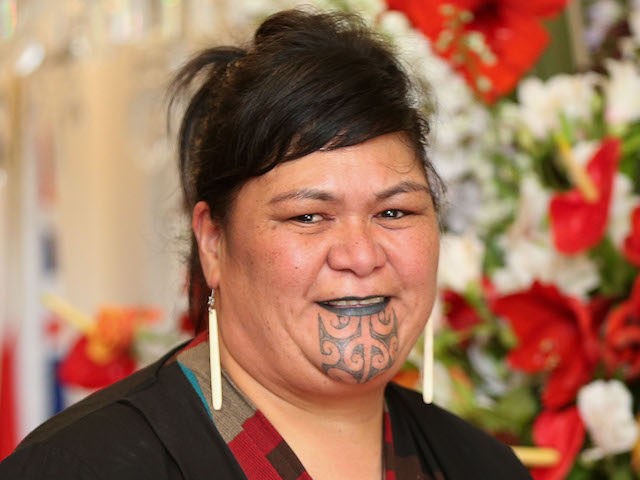New Zealand Prime Minister Jacinda Ardern on Monday nominated Nanaia Mahuta, a Maori, to serve as her country’s first woman indigenous foreign minister. Arden said the nomination was in line with her promise to assemble an “incredibly diverse” Cabinet.
CNN scored the incoming New Zealand parliament as “one of the most diverse” legislatures in the world:
Almost half of the country’s lawmakers will be women — significantly higher than the global average of 25%.
Around 10% of the incoming parliament are openly LGBTQ — higher than the previous title holder, the United Kingdom, where about 7% of the members of the House of Commons are openly gay, according to a national broadcaster Television New Zealand. New Zealand’s new deputy Prime Minister Grant Robertson is also gay.
“This is a cabinet and an executive that is based on merit that also happen to be incredibly diverse and I am proud of that,” Ardern said Monday as she announced her cabinet. “They reflect the New Zealand that elected them.”
Mahuta is a former member of parliament and the niece of Maori Queen Te Arikinui Te Atairangi Kaahu, who died in 2006. The late queen’s son Te Arikinui Tuheitia Paki is the reigning king in a line that stretches back seven generations. Mahuta had the traditional Maori moko kauae tattoo of lineage inscribed on her chin in 2016.
The Maori are divided into independent tribes, or iwi, which came together under a single monarch or kingitanga in 1858 so they could deal more effectively with the British colonial government. The Maori monarchy is involved in both New Zealand national politics and tribal affairs.
The iwi tribes still value their independence and maintain corporate identities for economic purposes. Mahuta holds a local government position she is expected to keep after becoming foreign minister, and will also have a role in guiding Maori development.
Maori political journalist Rukuwai Tipene-Allen told CNN it was “hugely empowering” for the face of New Zealand’s foreign policy to be “someone who speaks, looks, and sounds like a Maori.”
“It shows that our culture has a place at an international level, that people see the importance of Māori, and the point of difference that being Māori brings to such a role. Wearing the markings of her ancestors shows people that there are no boundaries to Māori and where they can go,” Tipene-Allen said of Mahuta’s nomination.
Matthew Tukaki, Executive Director of the New Zealand Maori Council, welcomed Mahuta’s nomination and predicted she would excel as foreign minister.
“I can tell you as someone who has been a former country representative to the United Nations these times require good steady hands on the art of diplomacy and Nanaia has it in spades. Our first female Maori Minister of Foreign Affairs is something to be applauded,” he said.
New Zealand’s Stuff.com said Mahuta was an “unexpected choice” for foreign minister, with senior ministers Andrew Little and David Parker seen as more likely selections. Ardern cited Mahuta’s ability to build “fantastic relationships very, very quickly” as one of her key qualifications for the foreign ministry.
“You only need to look at the difficult work that she has had to conduct over, for instance, her local government portfolio and that to me demonstrates those diplomacy skills that we need to represent New Zealand on the world stage,” Ardern said.
“What we know more than ever before in the Covid context is that, as a small country, we need to develop our relationships and remain committed to a multilateral rules-based trade system that works for New Zealand. And in a recovery context, we need to ensure that all the benefits are deepened to many more in our society, and a progressive trade agenda achieves that,” Mahuta said when her nomination was announced.
Mahuta acknowledged that relations with China would be a high priority, describing New Zealand as a “small country” that values its relationships across the globe.
“We’re the first country to give women the right to vote, the first country to ensure that we are progressive on issues relating to women,” she said. “So I follow in the line of a long legacy of firsts for women, and I hope many other women of Maori and mixed descent across New Zealand will see this as lifting the ceiling once again on areas that have been very much closed to us in terms of professional opportunities.”
Four other Maori parliamentarians will become Cabinet ministers along with Mahuta. Ardern celebrated the diversity of her Cabinet, including the first openly gay deputy prime minister, former finance minister Grant Robertson.
“It is both a Cabinet with huge merit and talent and which is incredibly diverse,” Ardern said. “I think it’s an important point to make – these are individuals who have been promoted for what they bring to the Cabinet, they also reflect the New Zealand that elected them. I think as a country we should be proud of this.”

COMMENTS
Please let us know if you're having issues with commenting.